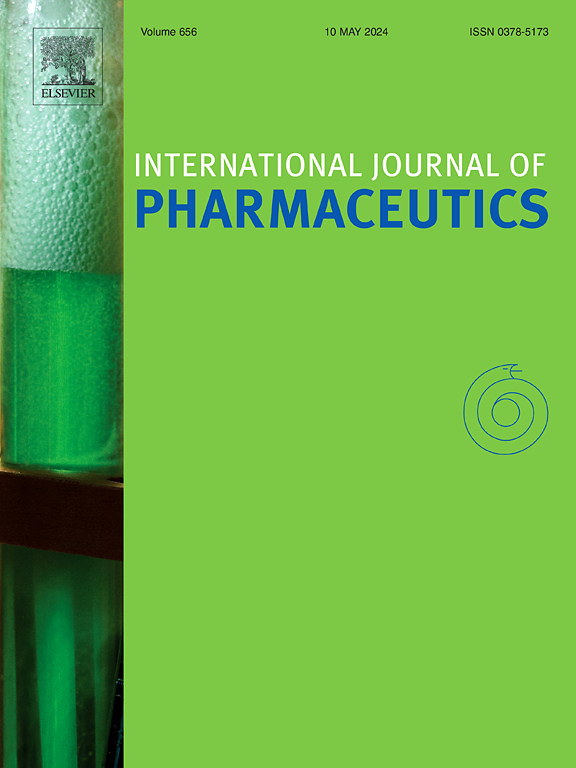Boosting the oral absorption of insulin using Ultrafine bubbles
IF 5.3
2区 医学
Q1 PHARMACOLOGY & PHARMACY
引用次数: 0
Abstract
Ultrafine bubbles (UFBs), which have a diameter < 1 μm, are renowned for their stability in liquid because of the effects of Brownian motion. The unique physicochemical properties and diverse biological effects of UFBs have potential industrial and biological applications. One important property of UFBs is their negative surface charge, which is thought to be able to influence the positively charged intestinal enzymatic activity and to increase peptide drug mucosal absorption. In this study, insulin was used as the peptide drug model and administered to rats both intestinally and orally at different concentrations of UFB solution to examine the effects of UFBs on the mucosal absorption of insulin. The UFB solution promoted mucosal insulin absorption. Increasing the number of UFBs in solution increased both ileal and oral insulin absorption. To identify the mechanism responsible for this increased insulin absorption, we examined insulin degradation in pepsin and trypsin solutions and found that the presence of UFBs slowed insulin degradation. The biological safety of UFBs in water was evaluated to examine their potential future health applications. UFBs did not affect common blood biochemical parameters or the health of organs and mucosal membranes. To our knowledge, this is the first study to provide evidence for the effects of UFBs in water on oral insulin absorption. In conclusion, the use of UFBs in water represents a novel method for increasing the oral absorption of peptide drugs, such as insulin. UFBs may be promising candidates as a delivery tool for clinical drug development.

求助全文
约1分钟内获得全文
求助全文
来源期刊
CiteScore
10.70
自引率
8.60%
发文量
951
审稿时长
72 days
期刊介绍:
The International Journal of Pharmaceutics is the third most cited journal in the "Pharmacy & Pharmacology" category out of 366 journals, being the true home for pharmaceutical scientists concerned with the physical, chemical and biological properties of devices and delivery systems for drugs, vaccines and biologicals, including their design, manufacture and evaluation. This includes evaluation of the properties of drugs, excipients such as surfactants and polymers and novel materials. The journal has special sections on pharmaceutical nanotechnology and personalized medicines, and publishes research papers, reviews, commentaries and letters to the editor as well as special issues.

 求助内容:
求助内容: 应助结果提醒方式:
应助结果提醒方式:


